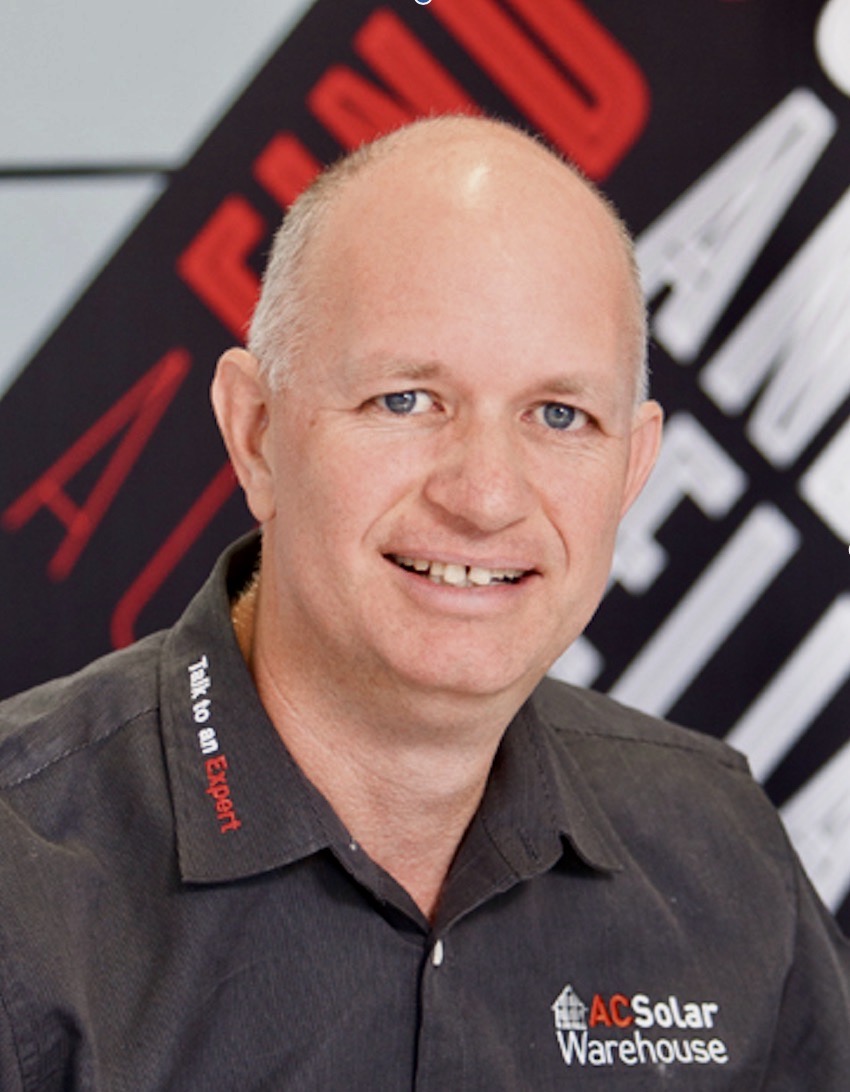pv magazine Australia: As Victoria comes flying out of its second lockdown, the AC Solar Warehouse is bracing for a “covid premium”, another 30% surge in sales replicating the first Covid-19 solar sales surge, why do you think Victorians are flooding to solar PV in these challenging times?
Grant Behrendorff, Managing Director of AC Solar Warehouse: Victorian families have spent more time at home than anyone else in Australia since the end of March this year. This has focused many people’s attention on household energy use and the high cost of electricity. This extra time at home has also provided them with an opportunity to catch up with things they may have meant to do for a while – such as getting quotes to install a solar system.
Is the Victorian solar industry in good shape to meet this surge? How has it handled the various lockdowns?
That will depend on each installer’s supply chain. As a national distributor, AC Solar Warehouse has worked closely with our suppliers to ensure our warehouse in Melbourne is well-stocked so that our installers can quickly get the products they need. Although installations could not occur during the lockdown in Melbourne, phone sales continued, so there is now a huge backlog of installations to undertake. As the Victorian industry has a relatively fixed capacity to install systems, it is likely to take many months for installation teams to fulfil this pent-up demand.
What are the major challenges facing the industry coming out of 2020 and solar once again on the rise?
There are downsides to every boom. While the solar industry is in great shape overall, there are still plenty of challenges to manage.
The greatest risk in the solar industry is sub-standard installations which can lead to system failures and DC arc faults – which have been the cause of many house fires in Australia over the past 10 years (an average of two per week according to a 2016 study). Sub-standard installations occur when solar companies engage inexperienced or unqualified installers or place pressure on installers to complete installations at an unreasonable rate. The use of low quality or inappropriate equipment is also a major cause of failures. That is why AC Solar Warehouse has chosen Enphase Energy as a key partner because its microinverters convert the solar panel-generated DC (Direct Current) energy to AC (Alternating Current) on the solar panel, which greatly reduces the risk of DC arcing and fires by avoiding the need to transmit high-voltage DC electricity through the roof space.
Authorities will focus on safety as increased installation levels require installers to spend more time on roofs. The appropriate use of Safe Work Practices, Personal Protective Equipment and Edge Protection is essential if serious accidents are to be avoided.
Other challenges may include potential equipment shortages, which would impact installation timelines, and the possibility of solar module price increases during the next three to six months due to feedstock cost increases and global demand rebalancing.
What was the role of efforts in regional areas supporting installers during the Melbourne lockdown?
Regional parts of Victoria have been less impacted by the COVID shutdowns, so solar installers in these areas were able in many cases to continue with at least some installations. There are now many opportunities for regional installers to assist with installations in Melbourne if they have the capacity to do so – particularly in the pre-Christmas period.
How have you and your team handled the hunger for solar since May?
We’ve worked closely with our key suppliers such as Enphase since May to minimise stock shortages. Although we’ve seen some port delays in several capital cities and reduced international air freight capacity, supply chain interruptions have been minimal during this period for the products we sell. We have also increased the stock levels in our Melbourne warehouse in anticipation of the increased demand to prepare for installations in Melbourne to ramp up.
What can we expect to see over the summer?
Summer is historically a busy time in the solar industry and this year will be no exception, with installers in most regions fully booked for weeks if not months ahead. It will be important for installers to think ahead in terms of equipment requirements as shortages are inevitable at this time of year. Signs are that sales are continuing strongly, so it looks like a long, hot summer for solar installers.
This content is protected by copyright and may not be reused. If you want to cooperate with us and would like to reuse some of our content, please contact: editors@pv-magazine.com.









By submitting this form you agree to pv magazine using your data for the purposes of publishing your comment.
Your personal data will only be disclosed or otherwise transmitted to third parties for the purposes of spam filtering or if this is necessary for technical maintenance of the website. Any other transfer to third parties will not take place unless this is justified on the basis of applicable data protection regulations or if pv magazine is legally obliged to do so.
You may revoke this consent at any time with effect for the future, in which case your personal data will be deleted immediately. Otherwise, your data will be deleted if pv magazine has processed your request or the purpose of data storage is fulfilled.
Further information on data privacy can be found in our Data Protection Policy.